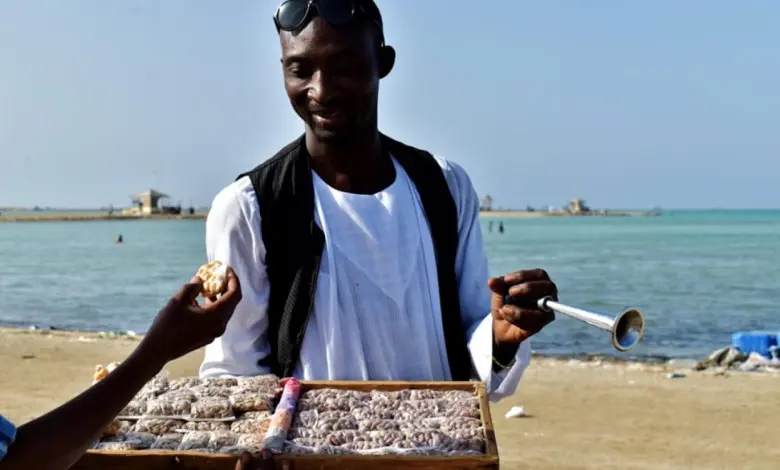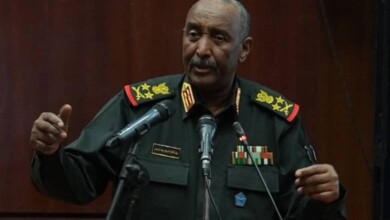How has the war changed the Sudanese economic reality ?

The ongoing war is the most destructive of wars that broke out in Sudanese history, and it represented a huge cause of social, political and economic change in Sudan. Some areas in Sudan can still be considered relatively safe and isolated from the chaos of war, and the economy there has the potential to become promising and stronger than it was before.
The war has affected Sudan’s crumbling economy and society in different ways and on several levels, resulting in a sharp rise in inflation and damage to the most crucial sector in the Sudanese economy, i.e the agricultural sector. Artisanal gold mining, which used to be the basis of the community economy, was also faced with great difficulties, before it all came to a halt due to the lack of security.
Economists have estimated the value of the Sudanese economy’s losses at ($600) billion since the outbreak of the war, which also caused a large number of Sudanese to flee to neighboring countries, especially Egypt. According to the United Nations Office for the Coordination of Humanitarian Affairs (OCHA), eight million people have been displaced from their homes in Sudan.
In addition to the Sudanese economy suffering a downturn since (2018) and expectations to reach (28%) by the end of this year, the war has also caused inflation rates to rise from (83%) in January (2023) to (146%) in December of the same year, while it reached (218%) last August, compared to (193%) last July.
Despite the crisis that surrounded the Sudanese public from all sides, some tried to turn the curse of war into a new opportunity, with different work experiences in various fields, whether inside or outside Sudan. The ongoing war is the most destructive of wars that broke out in Sudanese history, and it represented a huge cause of social, political and economic change in Sudan.
The continuous massive societal changes are rather noteworthy; new families have been created, children were born outside their homes, divorce rates have risen, and a large number of families have struggled to adapt to other places.
Harsh Conditions
Regarding her experience in the country of asylum, journalist Faiza Abaholo shared, “I worked in my field for eight years. I was helping my family and providing for our needs until the war broke out. I found myself forced to switch to another job as salaries were stopped and the situation changed drastically.”
(My displacement journey from Khartoum began when the war broke out, along with my family to the west of Sennar, to my grandfather’s house. I was unemployed for nine months there and the situation was extremely difficult. I truly came to feel the heavy burden of responsibility because the pressure was on my uncle who did his best to help us in these difficult circumstances,) she added. (It became more complicated after the fall of Wad Medani, and we had no choice but to travel an unknown path, which led us to Ethiopia. We have been here for about 10 months, and I haven’t been able to find any job and the situation is still difficult).
(These circumstances prompted me to look for a way to secure a living, so I decided to start selling falafel. Although the profession is simple, it provided us with some stability. I am not the only one, as a number of my colleagues have gone through such harsh conditions, which forced them to work in other fields,) according to Faiza.
(When I decided to start as a falafel seller, the beginning was difficult, but I believed that I had to adapt to the new reality in order to live in peace. The need for financial stability and to protect myself and my family from the consequences of the war at the same time was urgent. Coexisting with these circumstances was necessary to survive, and I believe that confronting challenges is the only way to survive them,) she said, noting that (with this income, I am about to complete my academic career and obtain a bachelor’s degree online from Ethiopia).
A New Opportunity
(When the war broke out, I was preparing to open a beauty center equipped with the latest equipment, after working in a small room in my family home,) stated Raqia Hassan, adding that (In a moment, everything was lost suddenly and shockingly, the shop was bombed to destruction, and we miraculously survived. I lost my source of income for a year, and before that I was helping my brother support the rest of my family, including young people studying in universities and children in schools.) She continued that (After I lost everything, I was displaced to the city of Dongola in northern Sudan and attempted to regain my activities there, however, I didn’t happen upon a suitable market, in addition to the high rental prices due to the pressure caused by the displacement on the region,) she added, (The opportunity to leave Sudan presented itself, to one of the Arab countries where I was able to resume my work).
Regarding the income generated by working in the beauty industry outside Sudan, she stated that (Despite the fierce competition, I was able to maintain a suitable income that allowed me to fulfill my obligations and living needs,) stressing that (despite the numerous obligations towards my family and relatives in war zones, I was able to meet these needs).
Fulfilling Obligations
As for journalist and former employee Abu Aqla Ayyashi, he stated, (Prior to the war, I was the Public Relations Manager at the Sudanese Center for Press Services, and a writer in some newspapers and media outlets, and my career varied between an employee in a company and my journalistic work).
He added that (Life changed drastically following the outbreak of the war, as the media sector came to a jarring stop similarly to other sectors, i was faced with unemployment, and began the journey of displacement with my family, as we were displaced from our homes in Khartoum to the River Nile state. The journey was very difficult, and I began contemplating ways to earn a living and how to support my family, while many questions loomed, such as how can I get a job? And how will I adapt in another region and with a new society?)
Abu Aqla Ayyashi went on to add: (I turned to a new field that had never crossed my mind before, I took up the profession of car servicing, and have been practicing this profession for a year and a half, covering some of the living expenses. Although the income depends on production and what is known as ‘daily livelihood’, every new day is better than the one before.) He confirmed: (I have become better at this profession, as it has helped me pay costs and fulfill the obligations of my children’s schools).
He explained that (A simple comparison can be made between my previous profession as a journalist and an employee prior to the war, and a worker in the car service sector following the war. I can attest that the latter profession generates an income that is sufficient to meet the obligations, although the financial income isn’t fixed. On the other hand, a monthly salary also has its advantages in that it is fixed and isn’t affected by illness or emergency incidents, in addition to offering social and health insurance, incentives and savings with work colleagues).
A Promising Economy
Amal Al-Khidr, a professor of economics at Sudanese universities, highlighted the economic transformations of Sudanese society in light of the war as new opportunities, saying, (The war led to a sharp rise in inflation, a collapse in the monetary value of the Sudanese pound, and an unprecedented increase in the dollar exchange rates, which contributed to the rise in prices, the chaos and lack of market control also resulted in exorbitant prices, as the merchant or small service provider sets the price at will to meet his own obligations).
She added, (The losses and material costs incurred by the State are significant, which has created a financial deficit, and in the absence of options for resolving the economic crisis in the near future, given the continuation of the war, and even if it stops, the economic sector is the slowest sector to respond to solutions. In addition to affecting and being affected by the government’s financing decisions for the plan to recover the Sudanese economy after the war).
(Therefore, any success achieved by a person in the shadow of this war, especially the youth, is an exceptional achievement, whether at home due to the circumstances of the war, or abroad, because the situation of Sudanese fleeing the conflict in most countries, either as refugees or visiting family, is unstable, which makes it difficult for them to find suitable work,) she added.
Al-Khidr stressed that (This severe disruption in economic activity could turn into a blessing for secondary professions that were dying, as the war could help strengthen what was previously a marginal branch of the Sudanese economy, changing its character and general balance, which could translate into gaining increased productive capacity and becoming relatively more flexible).
She continued, (Some areas in Sudan can still be considered relatively safe and isolated from the chaos of war, and the economy there has the potential to become promising and stronger than it was before. The crux of that idea is, the economy is exposed to instability and pressures imposed by the war, but in response, the State won’t be able to intervene and control the market, so its revival depends on the flexibility created by the forces of supply and demand).
Independent Arabia





